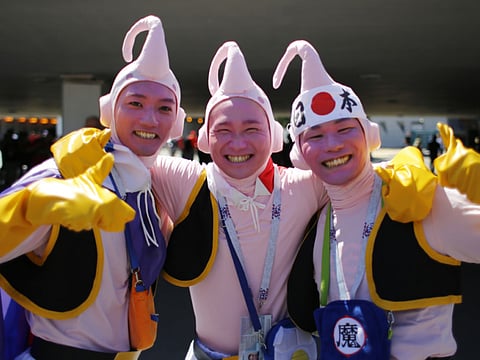World Cup as shared global culture
Beyond being at once a great spectacle of athletic grace and an unparalleled theatre of cultural communion, football connects the world

When the Mexican fiction writer Juan Villora, winner of the Spanish literary prize Premio Herraide, and son of the philosopher Luis Villora, at one time wondered to himself why there has never been “a great football novel”, he came to the conclusion, he tells us, that the answer may be that every game is already “its own eyes, its own tragedy, its own comedy”.
Call it soccer, as we do in North America, or futebol as they do south of the border, or just plain football, as you do elsewhere around the world. But the game, by any name you choose for it, is, in a way, much like chess, music and mathematics — wired to our neurological system, a game whose tense of reality speaks to us and about us in mysterious ways, in idiom at once narrowly parochial and universally egalitarian.
To understand the ethos of the World Cup, we may have to invert Shakespeare’s view that “all the world’s a stage” and say that the 8,625 square yards of a football field are the stage on which the world, or collectively the countries of the world, define their national narratives. Oh, the glory that grips victorious nations at moments like these!
But, wait, let’s not let the display of parochialism at World Cup events, with fans decked out in national flags and playful emblems, fool us. As nations meet for the games every four years — and this year Egypt, Morocco, Saudi Arabia and Tunisia are in it — a harmonic transformation takes over in the global dialogue of cultures and civility rules, even among disputatious nations. On the playing field of the World Cup, as in no other place, nations are effectively saying that they want to be part of one another. And consider how genial the game is, how its outcome is determined by the ballet-like grace, the mental agility, the pin-point passing, the skilful motor response (born out of years of hard training and constant practice) of the players, and not by a show of military prowess, economic hegemony and diplomatic bullying.
And, yes, surely, let’s face it, football is a devil lot more eloquent a game than American football, where overgrown men, clad in what appears to be medieval armour, bang each other into unconsciousness.
You’ve got to take your hat off to the people of Britain who introduced the game to the world around the 1860s — a game that went on to become the most popular in the global village that all of us around the world today call home, a game that assuredly will endure, unlike the “sports” that characterised more violent times in human history, such as contests between gladiators and lions — that for centuries were enjoyable pastime for urban populations in the Roman Empire — and medieval amusements such as public hangings, cock fights and bear-baiting.
As people in nations around the world, including ours in the Arab world, sit glued to their television sets, watching World Cup teams vying for the trophy in several stadiums across Russia, they will go through a medley of complex emotions. It doesn’t matter, for example, that Nigeria was given a 250/1 odds of emerging the winner this year, or that Brazil has not yet got over the gloom that engulfed it after that 7-1 debacle four years ago at the hands of Germany. Ordinary Nigerians and ordinary Brazilians will share the same group ecstasy experienced by other fans. And as a player from one’s team approaches the end field, close to the goal of the adversary team, fans — all fans — find their fists closing, their backs straightening and a coldness, as if in a fitful dream, stealing over their spines.
If, on the other hand, these folks are watching the game in Russia, they had better watch out.
Russia, sadly, is in an ugly mood at this time in its history, if you judge it by how Moscow authorities have failed to stop Russian fans from chanting neo-Nazi slogans and greeting black players with monkey sounds, as they have failed to stifle the hate speech of government politicians, including that of Tamara Pletnyova, a parliamentary committee chairwoman, who last week advised Russian women not to date foreign visitors, especially “those of a different race”. All of which is, given the fact that Russia is the host nation, antithetical to the spirit of the World Cup.
But, at the end of the day, beyond the thrill of victory and the agony of defeat, beyond being at once a great spectacle of athletic grace and an unparalleled theatre of cultural communion, the World Cup is also fun and games, when nations get together every four years to compete peacefully on the playing field as opposed to doing it violently on war fronts.
Fawaz Turki is a journalist, lecturer and author based in Washington. He is the author of The Disinherited: Journal of a Palestinian Exile.


